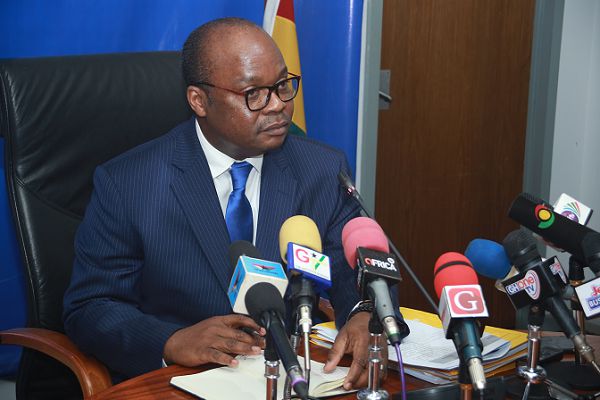Ghana’s economic activity is recovering faster than what has been observed with its peers due to the prudent fiscal measures put in place to deal with the effect of the coronavirus pandemic, Governor of the Bank of Ghana, Dr Ernest Addison has said.
He explained that the central bank responded to complement government’s Covid-relief measures with a raft of policy and regulatory measures to loosen financing conditions, ease liquidity pressures, and keep supply of credit to support critical sectors of the economy.
In particular, he said the BoG reduced the policy rate by 150 basis points to 14.5 per cent; reduced the primary reserve requirements and the capital conservation buffer for regulated financial institutions.
In collaboration with other stakeholders, the Bank also announced a reduction in the cost of mobile money transactions and purchased a 10-year Government of Ghana COVID bond with a face value of GH¢10.0 billion to augment governments’ financing requirements.
In his key note address at the Ghana National Chamber of Commerce & Industry CEO business forum, Dr Addison said “domestically, we have also seen the gains from these policies introduced to contain the effects of the pandemic— the Ghanaian economy has performed far better than its peers, and economic activity is rebounding faster than we observe with our peers with the Bank of Ghana’s Composite Index of Economic Activity showing a 26.8 percent year-on-year growth in March 2021. The HIS Markit Ghana Purchasers Managers Index, which gauges the rate of inventory accumulation by managers of private sector firms and measures dynamics in economic activity, also improved to 52 in April 2021, from 51.7 in March.
“Amidst the pandemic, inflation rose sharply from single digits and peaked at 11.4 percent in July 2020. Inflation has now declined from the double digits to 7.5 percent in May 2021, back to pre-COVID levels and within the medium-term target band of 8±2 percent.
“Average bank lending rates have trended down from a high of 26.2 percent in December 2017 to 20.9 percent in May 2021. At the May MPC meetings, the Policy Rate was lowered by 100 basis points to 13.5 percent on account of muted risks to the inflation outlook. The lower policy rate is expected to trigger further downward adjustments in interest rates more broadly.
At the Moment data coming in from the UK indicate that if you are fully immunized, two doses of the vaccines AstraZeneca, you are good to go.”
He added “Commercial banks in return also provided reliefs including loan restructuring and repayment moratoria, especially for firms in the worst-hit sectors.
“In total, about GH¢1.5 billion loans were restructured, of which the Manufacturing sector accounted for 24.5 percent share, Services with 24.3 percent, and Transport, Storage and Communication had 11.5 percent.
“These timely fiscal and monetary policy responses helped avert a very sharp contraction of the economy and spurred a faster recovery in the domestic economy.”







